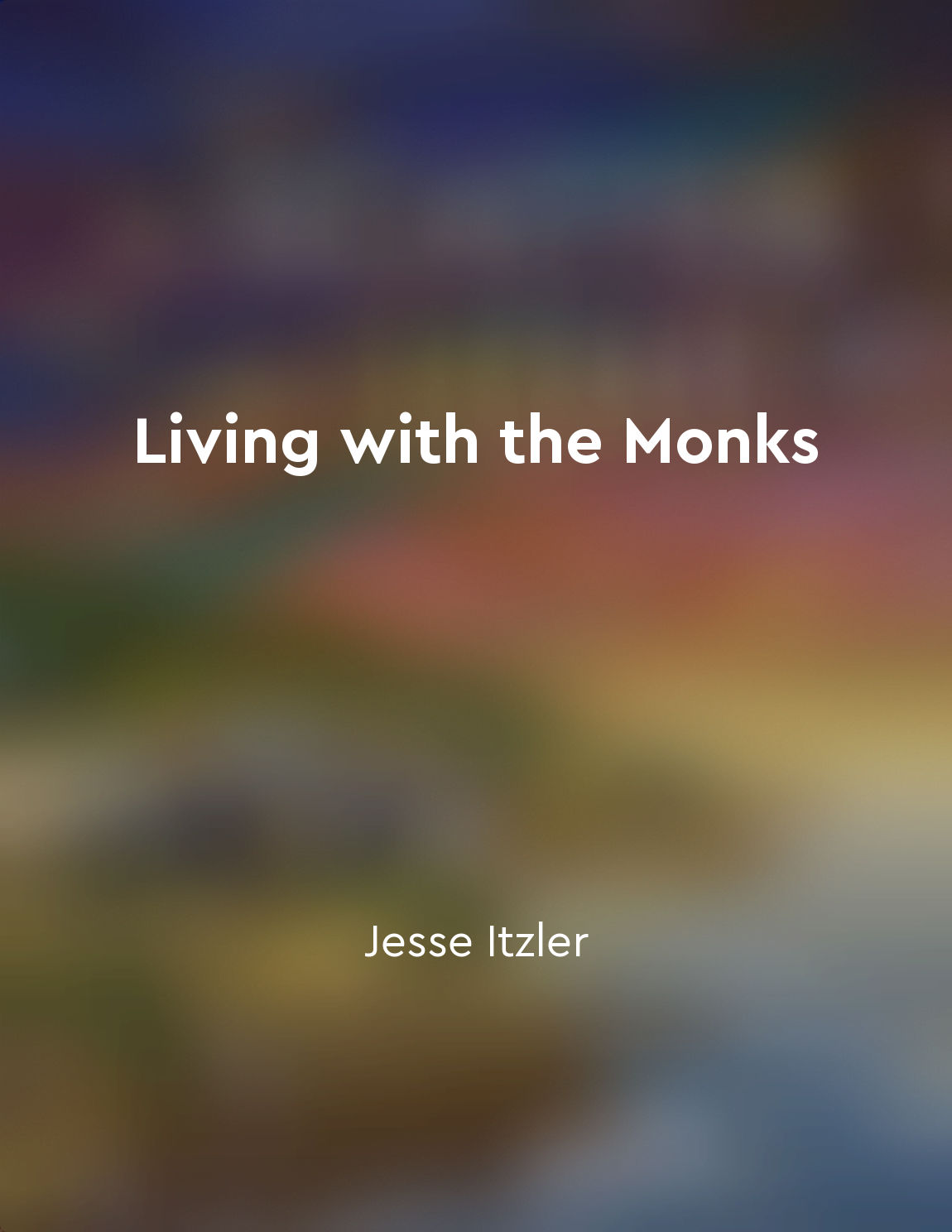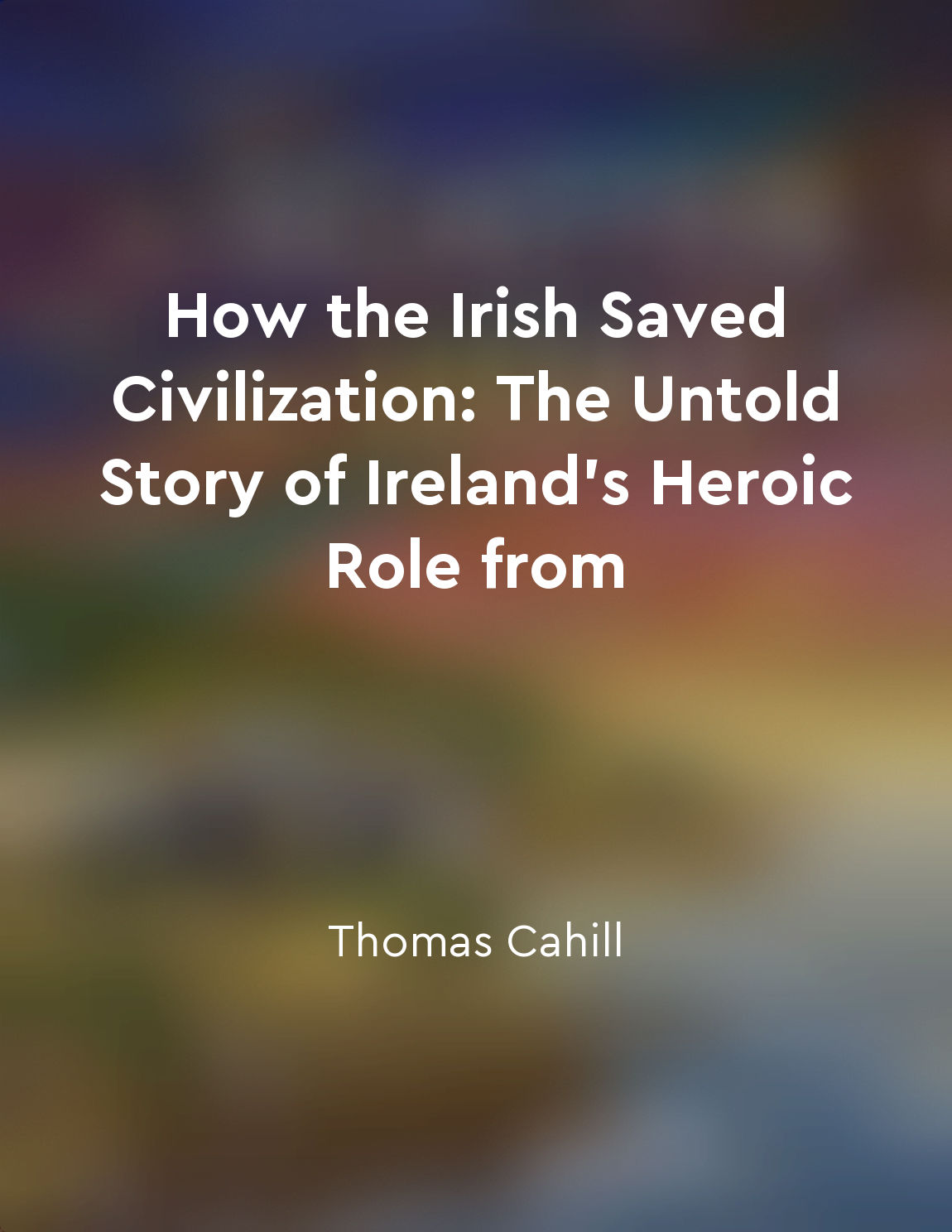Monastic life as foundation of civilization from "summary" of How The Irish Saved Civilization by Thomas Cahill
Monastic life, with its emphasis on simplicity and contemplation, played a crucial role in the preservation and transmission of knowledge during the tumultuous centuries following the fall of the Roman Empire. The monks, secluded from the chaos of the outside world, devoted their lives to prayer, study, and labor. In their secluded monasteries, they meticulously copied and preserved the works of ancient philosophers, theologians, and scientists, ensuring that the wisdom of the past would not be lost to future generations. While the rest of Europe descended into darkness and ignorance, the monasteries of Ireland became beacons of learning and civilization. Monks such as Saint Patrick and Saint Columba not only converted the pagan Irish to Christianity but also established monastic communities that became centers of scholarship and culture. These monasteries were not just places of worship; they were also schools, libraries, and centers of agriculture and craftsmanship. The monks cultivated the land, brewed beer, and created exquisite works of art, all while devoting themselves to prayer and study. The monastic communities of Ireland were not isolated from the world around them. On the contrary, they were deeply engaged with the political, social, and intellectual currents of their time. Monks such as Saint Columbanus and Saint Gall ventured into the wider world, establishing monasteries and spreading the Christian message throughout Europe. They were not afraid to challenge secular authorities or engage in theological debates. Their writings and teachings influenced kings, bishops, and scholars, shaping the course of Western civilization. In the monastic communities of Ireland, the boundaries between the sacred and the secular were blurred. The monks saw their work as a form of worship, whether they were copying manuscripts, tending to the sick, or brewing ale. They believed that all labor was holy, and that the pursuit of knowledge and beauty was a form of devotion. This holistic approach to life and learning laid the foundation for the great achievements of the medieval period, from the rise of universities to the construction of cathedrals.- The monastic life was not just a retreat from the world; it was a vital and dynamic force that shaped the course of Western civilization. Through their dedication to prayer, study, and labor, the monks of Ireland preserved the wisdom of the past and laid the groundwork for the intellectual and cultural achievements of the future. Their commitment to simplicity, contemplation, and service was not just a personal choice; it was a way of life that transformed the world around
Similar Posts
Practice selfcare as a form of self-love
When we talk about self-love, the concept of self-care inevitably comes up. Self-care is not just about taking bubble baths or ...
Irish monks as cultural innovators
The Irish monks of the Middle Ages were not just pious men of prayer. They were also cultural innovators whose impact on Wester...
Celts as carriers of Western civilization
The Celts, though often dismissed as barbarians by the Romans, actually played a crucial role in the preservation and transmiss...

Embrace change
Change is inevitable. It's a constant force in our lives, pushing us out of our comfort zones and challenging us to adapt. We c...

The Irish monks laid the foundation for the Renaissance in Europe
In the early Middle Ages, when the Roman Empire was crumbling and Europe was descending into chaos, the Irish monks emerged as ...
Irish monks as ambassadors of enlightenment
The Irish monks were not just monks; they were emissaries of light in an age of darkness. As Europe descended into chaos follow...

Irish scribes meticulously copied and illustrated manuscripts
The Irish scribes, those tireless monks who spent their lives in scriptoria copying ancient texts and illustrating manuscripts,...

